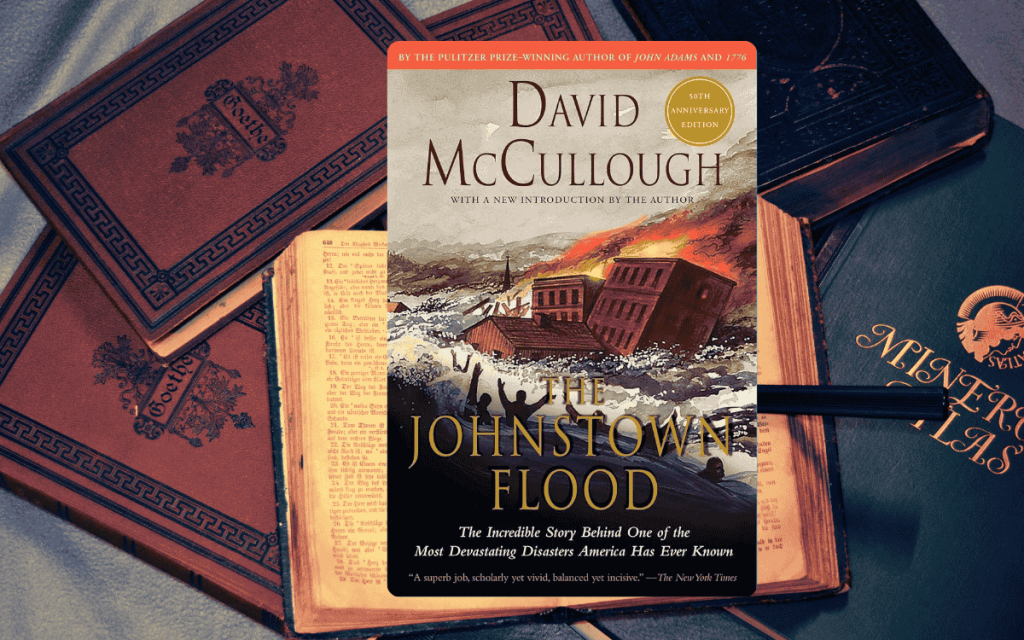
The Johnstown Flood
The Johnstown Flood by David McCullough: A Riveting Account of a Historical Disaster
David McCullough’s The Johnstown Flood is a masterful recounting of one of America’s greatest tragedies, the catastrophic flood that devastated Johnstown, Pennsylvania, in 1889. This meticulously researched book offers a gripping narrative of the events leading up to the disaster, the flood itself, and its aftermath. Through vivid storytelling and compelling detail, McCullough brings to life the human drama, engineering failure, and societal impact of this historical calamity.
Overview
On May 31, 1889, a poorly maintained dam on the Little Conemaugh River gave way after days of heavy rain, unleashing a torrent that obliterated the town of Johnstown and killed over 2,200 people. McCullough traces the origins of the tragedy, focusing on the elite South Fork Fishing and Hunting Club, whose neglect of the dam played a pivotal role. He combines technical analysis with personal stories of survival, heroism, and loss, painting a comprehensive picture of the disaster.
Key Themes
1. Negligence and Accountability:
The book highlights how the wealthy members of the South Fork Club prioritized leisure over safety, leading to the dam’s failure. McCullough examines the societal dynamics and lack of accountability that contributed to the disaster, drawing parallels to broader issues of class and responsibility.
2. Human Resilience:
Amid the tragedy, McCullough emphasizes stories of bravery and resilience, showcasing how ordinary people responded to extraordinary circumstances. These tales add a deeply human element to the narrative, making the history feel immediate and personal.
3. The Power of Nature:
The overwhelming force of the flood serves as a stark reminder of humanity’s vulnerability to nature, particularly when human negligence amplifies its destructive potential. McCullough’s vivid descriptions bring the sheer magnitude of the disaster to life.
Literary Significance
McCullough’s debut work, The Johnstown Flood, established him as one of the finest historical writers of his time. His ability to weave meticulous research into a compelling narrative sets the book apart. The prose is clear, engaging, and emotionally resonant, making it accessible to both history enthusiasts and general readers.
Cultural Impact
The book has been praised for shedding light on a forgotten tragedy, bringing attention to the lives lost and the lessons learned. Its publication in 1968 helped revive interest in the Johnstown Flood, ensuring its place in American historical consciousness.
Why Read The Johnstown Flood?
1. Immersive Storytelling:
McCullough’s vivid descriptions and attention to detail make this historical account as gripping as any novel.
2. Timely Lessons:
The book serves as a cautionary tale about the consequences of neglect and the responsibility of those in power to ensure public safety.
3. Historical Insight:
It offers a comprehensive look at 19th-century America, its industrial boom, and the societal divisions that shaped the disaster’s context.
Conclusion
David McCullough’s The Johnstown Flood is a powerful and poignant account of one of America’s deadliest disasters. Through meticulous research and masterful storytelling, McCullough captures the human and historical dimensions of the tragedy, offering a narrative that is as informative as it is compelling. Whether you are a fan of historical nonfiction or interested in stories of resilience and accountability, The Johnstown Flood is a must-read.